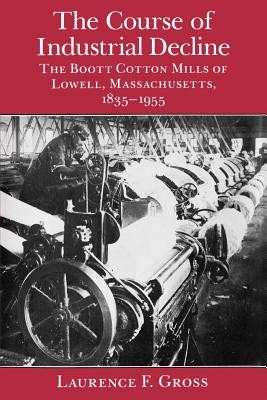
- We will send in 10–14 business days.
- Author: Laurence F Gross
- Publisher: Johns Hopkins University Press
- ISBN-10: 0801863635
- ISBN-13: 9780801863639
- Format: 15.5 x 23 x 2.1 cm, softcover
- Language: English
- SAVE -10% with code: EXTRA
Reviews
Description
Studies of American industry frequently cite Lowell, Massachusetts, as an early model for business practices. Scholars have sought to explain the city's rise to prominence, the impact of its textile mills on workers and on commerce, and its part in regional development and American prosperity. Laurence Gross looks beyond these issues. Focusing on Lowell's Boott Cotton Mills, he examines the industry's struggle to maintain its prominence, the causes of its decline, and its ultimate flight south.
Gross puts much of the blame for the pattern of events on the mill-owners themselves. They resisted reinvestment, so their operations became less efficient. They kept antiquated machinery running long after it was safe to do so, and they were slow to respond to issues of worker safety. The increased textile demands of World War II, Gross explains, only forestalled the mills' inevitable demise.
EXTRA 10 % discount with code: EXTRA
The promotion ends in 18d.06:35:50
The discount code is valid when purchasing from 10 €. Discounts do not stack.
- Author: Laurence F Gross
- Publisher: Johns Hopkins University Press
- ISBN-10: 0801863635
- ISBN-13: 9780801863639
- Format: 15.5 x 23 x 2.1 cm, softcover
- Language: English English
Studies of American industry frequently cite Lowell, Massachusetts, as an early model for business practices. Scholars have sought to explain the city's rise to prominence, the impact of its textile mills on workers and on commerce, and its part in regional development and American prosperity. Laurence Gross looks beyond these issues. Focusing on Lowell's Boott Cotton Mills, he examines the industry's struggle to maintain its prominence, the causes of its decline, and its ultimate flight south.
Gross puts much of the blame for the pattern of events on the mill-owners themselves. They resisted reinvestment, so their operations became less efficient. They kept antiquated machinery running long after it was safe to do so, and they were slow to respond to issues of worker safety. The increased textile demands of World War II, Gross explains, only forestalled the mills' inevitable demise.


Reviews